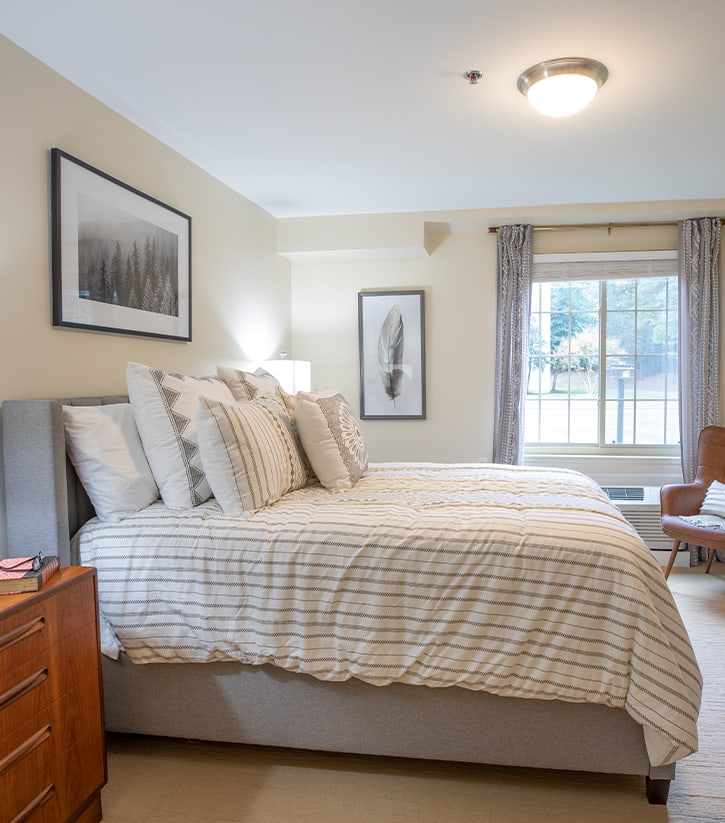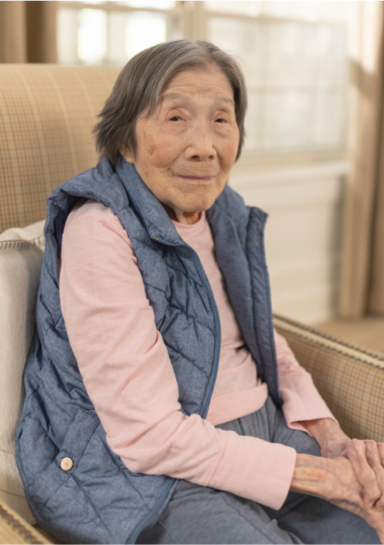Caring for a loved one with memory impairments can bring its own set of challenges. Finding the right care solution is an essential step in supporting their well-being and quality of life.
Memory care communities, like RUI’s The Barrington at Hioaks, specialize in creating supportive and structured environments that cater to seniors living with conditions like Alzheimer’s disease or other forms of dementia.
What Is a Memory Care Community?
A memory care community is a specialized type of senior living that focuses entirely on seniors with memory-related conditions. Unlike general assisted living communities, memory care is designed to address the specific needs of its residents, providing a safe, engaging, and compassionate environment.
These communities are built around creating stability, familiarity, and comfort, ensuring that residents can retain their dignity and autonomy while receiving the supportive care they need.
Key Features of Memory Care Communities
Structured Daily Routines
Residents benefit from consistent daily schedules, including set meal times, engaging activities, and periods for relaxation. Familiarity helps reduce anxiety and creates a sense of stability.
Assistance with Daily Activities (ADLs)
Staff members are trained to provide gentle, hands-on support for tasks like bathing, dressing, medication management, and meal assistance.
Engaging Activities
Memory care communities offer activities tailored to varying cognitive and physical abilities. These can include arts and crafts, music therapy, group games, and outings that help residents stay connected and engaged.
Safe & Navigable Spaces
From secure entrances and exits to color-coded hallways for easier navigation, memory care communities prioritize safety. These measures help prevent wandering and confusion while promoting independence.
Specialized Staff Training
Caregivers in memory care settings receive training in understanding dementia-related behaviours, effective communication techniques, and supportive care approaches.
Why Choose Memory Care?
Memory care isn’t just about meeting physical needs; it also supports the emotional, social, and cognitive well-being of residents. Here are some benefits to consider:
- Enhanced safety: With 24/7 staff presence, robust security measures, and tailored care plans, memory care ensures your loved one is safe in their environment.
- Personalized approach: Care plans are designed to meet the needs of each individual, promoting autonomy and dignity in daily living.
- Improved quality of life: Through carefully planned activities and a supportive environment, residents experience a higher level of engagement and well-being.
- Support for families: Knowing your loved one is cared for by professionals allows you to focus on spending quality time with them instead of taking on the full burden of caregiving.
Choosing the Right Memory Care Community

1. Safety & Security Measures
Look for features like secure entrances, emergency response systems, and protocols to prevent wandering. Communities like those at RUI often integrate safety seamlessly into their designs.
2. Qualified & Compassionate Staff
Ask about caregiver training and staff-to-resident ratios. A low ratio allows for more personalized care, while proper training ensures staff understand the nuances of dementia care.
3. Individualized Care Plans
Opt for a community that tailors care to your loved one’s specific needs and preferences. This ensures they receive the appropriate level of support while maintaining as much independence as possible.
4. Focus on Activities & Engagement
Find out what programs and activities the community offers. A variety of options can help your loved one stay socially and cognitively engaged.
5. Family Support & Communication
Look for a community that values family involvement and provides regular updates. Many communities, like The Barrington at Hioaks, prioritize building strong partnerships with families to create a seamless care experience.
6. Environment & Atmosphere
Visit the community in person to get a sense of the atmosphere. Does it feel warm, inviting, and home-like? Trust your instincts during this step of the process.
Making the Transition to Memory Care
Plan Ahead
Begin your search before the need becomes urgent. This gives you the time to research options, visit communities, and make an informed choice without feeling rushed.
Communicate Openly
Keep communication lines open with your loved one and other family members involved in the decision. Where possible, involve your loved one in choosing the community to give them a sense of empowerment.
Ease the Transition
Familiarizing your loved one with the new environment can make the process smoother. Arrange visits, introduce them to staff, and customize their living space with personal belongings to make it feel like home.
Leverage Support Resources
Most memory care communities offer guides, family orientation, and resources to help you through the transition. At The Barrington at Hioaks, our supportive team is always available to provide guidance tailored to your unique situation.
Next Steps
A memory care community can provide your loved one with the specialized care they deserve while offering you peace of mind.
If you’re starting the search for memory care or simply want more information, our compassionate RUI team is here to help. Contact us today to learn more about our memory care offerings in our communities, like The Barrington at Hioaks, and how we can support you and your family in this important decision.














